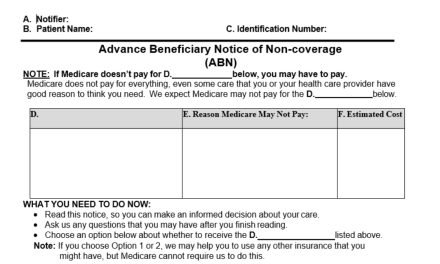
When Is A Physician-Patient Relationship Legally Formed?

Is a physician-patient relationship legally formed when someone calls your office to make an appointment? Below is a hypothetical situation.
Dr. Sebastian is a family practice physician. Emma Rock, a prospective patient of Dr. Sebastian, sent a written complaint to Dr. Sebastian regarding a voicemail message that she left during business hours at his office to make an appointment. Dr. Sebastian’s office staff received the voicemail, but never returned the call. It just “fell through the cracks.” Ms. Rock had no prior relationship with Dr. Sebastian. After Ms. Rock left the message, her condition worsened, leading her to seek treatment at an urgent care center. Ms. Rock posted on social media online about Dr. Sebastian not returning phone calls, and threatened in her letter to file suit claiming that her illness worsened because her phone call was not answered. Would Ms. Rock prevail in a claim against Dr. Sebastian?
Ms. Rock would not prevail in her claim for medical malpractice against Dr. Sebastian for not returning her phone call. Central to this inquiry is whether Dr. Sebastian owed Ms. Rock a duty to treat her. For Dr. Sebastian to owe Ms. Rock this duty, a physician-patient relationship must have been clearly established.* A “relationship of physician and patient is a consensual relationship in which the patient knowingly seeks the physician’s assistance and the physician knowingly accepts the person as a patient.” ** Physicians are not under any obligation to treat a patient unless they choose to (exceptions are made when emergency care is needed). In general, once a physician affirmatively acts by examining, diagnosing, treating or agreeing to treat, a physician-patient relationship is formed, and a duty is owed.
Ms. Rock’s phone call and message to Dr. Sebastian show she knowingly sought Dr. Sebastian’s assistance about her medical condition, however, her actions did not meet the requirement. Dr. Sebastian had no previous contact with Ms. Rock, but did not accept her as a patient and provided no advice. Therefore Dr. Sebastian did not affirmatively enter into a doctor-patient relationship with Ms. Rock.
For further information about physician patient relationships, contact Melinda Malecki at mmalecki@mbhealthlaw.com.
* Siwa v. Koch, 388 Ill. App. 3d 444 (Ill. App. Ct. 1st Dist. Feb. 10, 2009), citing Reynolds v. Decatur Memorial Hospital, 277 Ill. App. 3d 80 (1996).
** Gillespie, 387 Ill. App. 3d at 544 (citing Reynolds, 277 Ill. App. 3d at 85).
Articles distributed by Malecki & Brooks Law Group, LLC are advertisements and summaries for general information and discussion purposes only. They are not full analyses of the matters presented, legal, or otherwise, and may not be relied upon as legal advice.



















